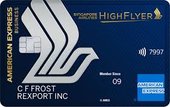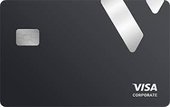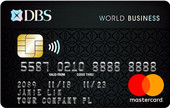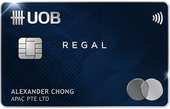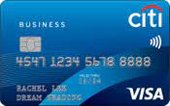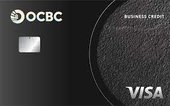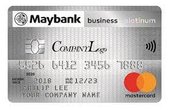Who are business credit cards suitable for?
- Small business owners. For those running a small business with a trading history and accounts, a business credit card can help manage expenses and provide access to much-needed credit.
- Freelancers. Depending on your trading setup, freelancers who have been trading and have the accounts to prove it may be eligible for a business credit card. One of the key benefits is the separation of personal and business costs — and rewards. The typical business credit card has a better earn rate than a credit card for personal use.
- Larger businesses. Business credit cards make it easy to issue cards to multiple employees, each typically with individual spending limits and transaction breakdowns, allowing for simpler expense tracking.
Who a business credit card is unsuitable for
Business credit cards are designed to meet the financial needs of businesses, both large and small. But, they most certainly are not suitable for everyone.
- Personal users. Mixing personal and business expenses can complicate accounting and potentially lead to legal issues. Documentation required during application will not be available for individuals.
- Startups or struggling businesses. You'll need to provide evidence of revenue and profit, typically with accounts. If you don't have that trading history because your business is relatively new or has been experiencing difficulty trading, it may be challenging to get approved.
- Sole proprietors with low expenses. Leaner businesses might struggle to extract meaningful value out of the rewards and benefits business credit cards offer, especially after factoring in the cost of the annual fee and/or interest (if applied to a balance carried over).
- Those unwilling to personally guarantee. If you're not willing to personally guarantee the debt and take on liability, a business credit card may not be suitable.
What to compare for business credit cards
- Rewards. What types of credit card rewards are available? Will what you typically need to buy to operate your business — merchandise, stock, services, travel, etc. — be eligible to earn rewards points?
- Redemption options. What airlines are partners of the rewards program? Are you locked into Singapore Airlines or are there multiple transfer partners, like what American Express offer with their Membership Rewards transfer partners?
- Lounge access. Will you get access to lounges at Changi and other airports outside Singapore? Who can use the passes? Will you have access to the KrisFlyer lounges or can you get in with Priority Pass / LoungeKey?
- Charge or credit. Many issuers offer businesses charge cards rather than credit cards. They work the same way, with the main distinction being you need to pay off a charge card each month. Be clear about what you're applying for.
- Employee cards. How many cards can be linked to the same business account, and can you set separate spending limits for each employee?
- Interest rates and fees. How competitive are the annual fees and interest rates for each card you're considering? Are there any hidden fees lurking in the small print? For businesses with suppliers and staff abroad, do you get fee-free foreign transactions?
- Accounting feed integration. Can you get a feed from the bank to your accounting software for easier reconciliation? For example, will you be able to integrate with Xero?
How to compare business credit cards
- Evaluate your business needs. Consider your business's spending habits and if a credit card would help smooth out the peaks and troughs. Perhaps you don't need a credit card at all?
- Research available business credit cards. Compile a list of business credit cards that meet your requirements, noting important details such as interest rates, fees, and rewards.
- Compare rewards and benefits. Assess which card's offerings align best with your business needs and preferences.
- Check eligibility requirements. Ensure your business meets the minimum criteria for applying for your chosen card.
- Apply. Once you have found the perfect card for your business, apply and await approval from the bank. Avoid applying for multiple cards within a short period of time.
- Hit the spending target. Don't forget you'll need to put a certain amount of spend through the card if you want to secure the welcome bonus.
Pros and cons
Pros
- Earn rewards. Business credit cards frequently offer attractive rewards like cashback, travel perks, and point accumulation.
- Useful credit. A business credit card can provide a convenient short-term line of credit when cash flow is tight.
- Streamlined expense tracking. Business credit cards help separate personal and professional expenses, making it simpler to manage finances.
- Cards for staff. Control and track how much staff spend on business expenses.
Cons
- Potential debt. Business credit card debt can accumulate quickly if not managed carefully, potentially leading to financial hardship.
- Annual fees and interest rates. Business credit cards may have higher annual fees and interest rates, reducing the overall value of their rewards and benefits.
FAQs
How does a business credit card impact my personal credit score?
A business credit card's impact on your personal credit score varies between banks and your business structure. However, ensuring timely repayments and controlling the balance owed will generally benefit personal and business credit scores.
Can a personal credit card balance be transferred to a business credit card?
Transferring a balance from a personal to a business card is generally not permitted.
